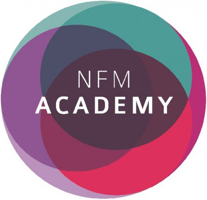What is your job role and what does that involve?
My job as an editor is to take the previous days shoot rushes and assemble them. This happens while the shoot is occurring so there isn’t a backlog when the director comes to the fine cut, as well as showing the director/producers how the footage is cutting together in case they want to get any additional pick-ups etc. In the fine cut with the director, we work together to fine tune the entire sequence, adding temp score, SFX and looking at alternative takes for performance/narrative reasons, while getting the programme to length.
What are a few of your career highlights so far?
I’ve loved editing every job as each one has been a different challenge. I got to work in Morocco recently which was great fun and also beneficial being close to location/set. Another highlight was editing 2 episodes of Vera Series 6, great to be part of an excellent drama shot in the North East.
How did you start in the industry?
I started as an assistant editor on Coastal Productions Wire In The Blood. It was a great entry point into the industry as I got to meet and assist more than one editor (the series was 4 episodes/which meant 4 editors). Having the 4 editors, meant it was a great way of networking/building a contact list as well as learning editing techniques from different people.
What training have you had?
I studied a BA Hons Media Production degree at Newcastle College with a final year at Northumbria University, this was great way to learn many different elements of the industry.
The job role that I knew I wanted to do was editing and also the main reason I did the final year at Northumbria was because they had an Avid (Avid Media Composer). So it was in that final year I got hands on experience cutting short films on Avid which would go on to benefit at industry standards.
What key skills do you need for your job?
Technical knowledge of Avid Media Composer (or other editing software depending on the production). A good understanding of the script, as often they shoot scenes out of script order. So it’s important to know why certain characters are acting the way they are as this will reflect on how you assemble the scene, if they are sad, suspicious, angry etc, what led to that. Good communication/people skills, even though most of the time you will be alone during the assemble stage, it’s important to keep good contact with your assistant editor, producers, director and anyone else on set.
Is there anything that people should be aware of when pursuing this role?
Be prepared to work long hours in a dark room, get a good chair as you will spend a lot of time sitting on it!
What would you look for if you were to hire a trainee?
I have hired and trained assistants over the years and I always look for someone who is keen, wants to learn and wants to be there.


